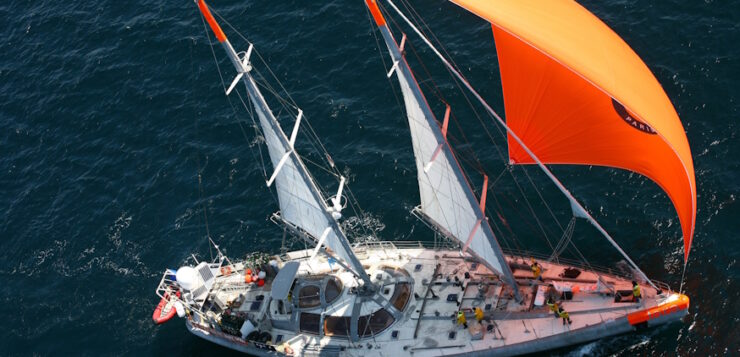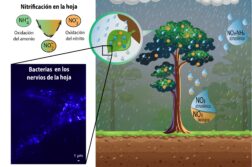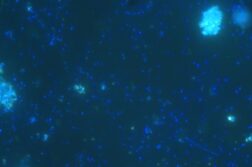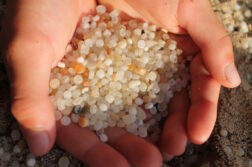This spring, the Traversing European Coastlines (TREC) expedition arrives in Catalonia, carried out with the famous sailboat. It is a scientific campaign to study the coastal ecosystems throughout Europe. Researchers from CEAB-CSIC specialized in molecular ecology are collaborating with them.
Over the course of two years, the TREC team collects samples of water, sediments, flora, aerosols… from the coastal ecosystems of 21 European countries, at 120 different locations. Sampling ranges from land to offshore, from degraded to naturalized ecosystems. Water column and aerosol sampling tasks are carried out with the TARA sailboat.
The expedition, which has been underway for eight months, has been in the Atlantic, the Baltic, and the North Sea. Now it is working in the Mediterranean, and on May 18, it arrives in Barcelona. For a few days, the city’s port will be its operational base. From there, the boat will sail to various points along the Catalan coast, such as the area between Blanes and Lloret de Mar or the Medes Islands.
In addition to scientific work both at sea and on land, the TREC campaign includes outreach activities: there will be a mobile laboratory and open talks for the public on coastal ecosystems and the effects of human impacts. Most activities will take place at the headquarters of the Institute of Marine Sciences (ICM-CSIC), on the Barceloneta seafront in Barcelona.
TREC is led by the European Molecular Biology Laboratory (EMBL) together with the Tara Ocean Foundation, the Tara OceanS consortium, and the European Marine Biology Resource Centre (EMBRC). It brings together more than 150 research teams from over 70 institutions. At each stop, the expedition works with local collaborators such as the Institute of Marine Sciences (ICM-CSIC), which leads the coordination of the expedition in Barcelona in collaboration with the Institute of Evolutionary Biology (IBE:CSIC-UPF), the Institute of Environmental Assessment and Water Studies (IDAEA-CSIC), and the Center for Advanced Studies of Blanes (CEAB-CSIC).
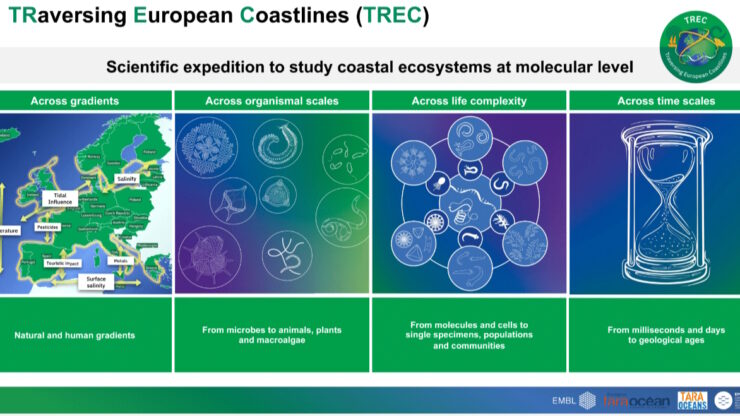
This is the first continental-scale project that studies coastal ecosystems and their response and resilience to global change, to impacts caused by humans. Environmental DNA analysis will allow us to see if there is an accelerated loss of species diversity. Molecular techniques will also allow us to understand the adaptations of organisms to the stressors they suffer and evaluate the health of different ecosystems.
The expedition’s work will also gather information on factors such as the presence of contaminants, antibiotics, pesticides, or hormones, apart from temperature, salinity, oxygen level, and other parameters.
The European nature of the project implies that samples are collected, stored, and treated in a standardized manner. This will allow comparing data from all over Europe, something that has been complicated so far due to the particularities of each regional or national system


